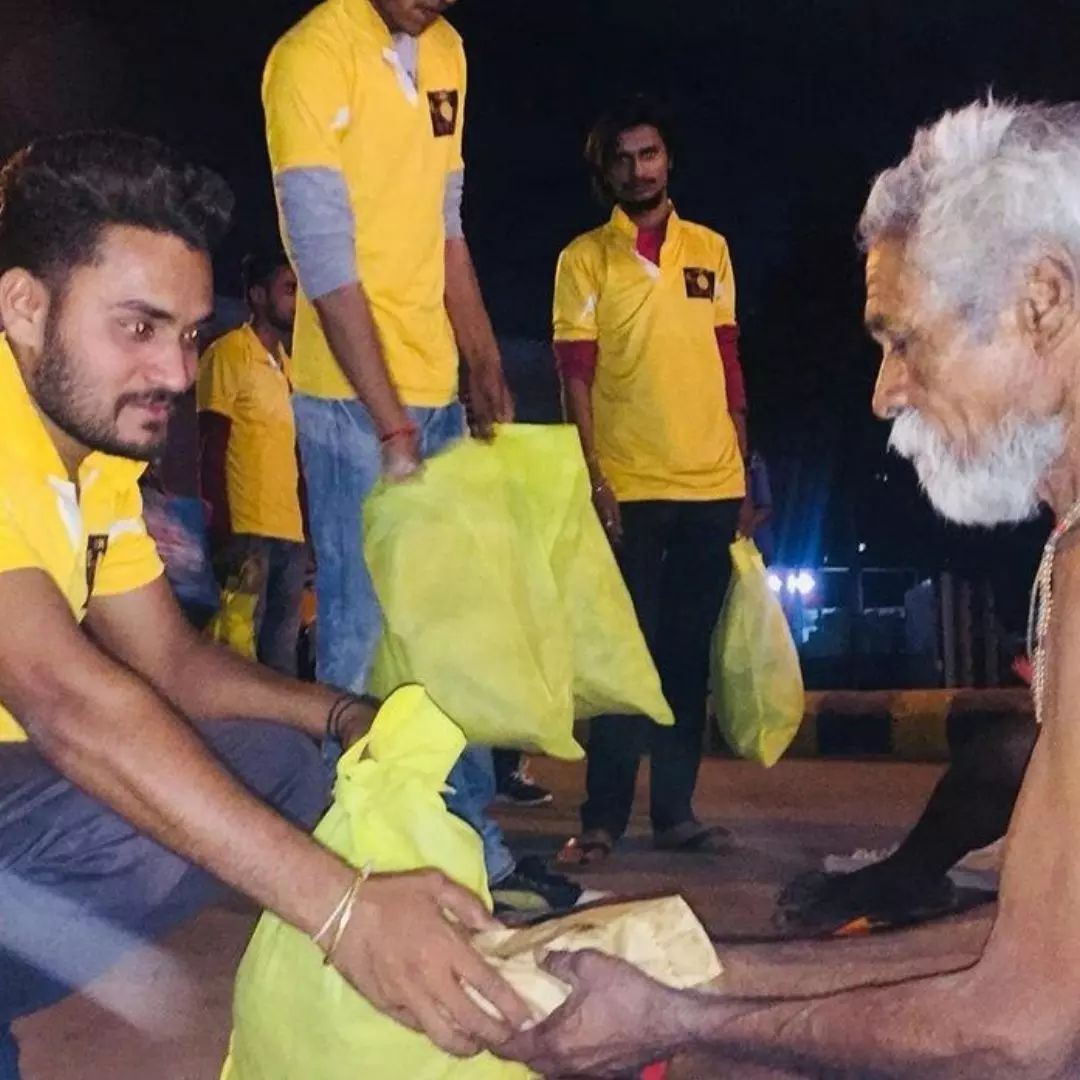“There are people in the world so hungry that God cannot appear to them except in the form of bread” – Mahatma Gandhi.
For many people who are left with as much as a morsel to survive on, the one who feeds them is equivalent to God. One such organisation in the country that has been ensuring that nobody goes empty stomach is the “Indian Roti Bank.” Started by Vikram Pandey about seven years ago, the movement, which started with an encounter in Lucknow, has now grown to provide food to the hungry in countries like Nepal and Nigeria as well.
Roti Bank : Hardoi To Nepal
Pandey, a 38-year-old Lucknow University graduate, had started the Indian Roti Bank about seven years ago. He had met a woman begging outside the Lucknow railway station, who changed the way he viewed hunger. Initially, he did not pay any heed to her, but as she started crying saying she was hungry, he was moved. He took her to a food cart, where she had food up to her heart’s content. Pandey could see that the woman was really hungry, and this was all he could think about during his journey to Delhi. On his way back from Delhi, Pandey started feeding hungry people with some help from his friends.
Pandey, a native of Hardoi, started offering food to the hungry under the banner “Bhukha Na Soye Koi (Nobody sleeps empty stomach) – Roti Bank Hardoi.” In the initial days, several local officials encouraged the initiative, and the movement gradually grew with his friends supporting him in collecting and distributing the rotis. More people kept joining the campaign, and within a short span, the Roti Bank Farrukhabad was started with the slogan “Khao Piyo, Raho Aabad – Roti Bank Farrukhabad.” Eventually, this led to establishing of the Indian Roti Bank across 14 states and countries like Nepal and Nigeria.
Run For & By The People
According to a report by Economic Times, IRB now has its branches across 100 districts in 14 states and has successfully provided food to about 12 lakh people. Speaking about how the bank functions, Pandey elaborated that the volunteers collect rotis from families, prepare the vegetables, and pack four rotis with a portion of the vegetables, pickles, and chilly. Once confirmed to be fresh and fit for consumption, these packets are distributed among beggars, the destitute, and the hungry at railway stations, bus stations, and other public places.
Mohit Sharma, a resident of Jiamau and coordinator of the IRB Lucknow, said that, on average, their volunteers collect 300 rotis from about 50 to 60 families and distribute it all to the needy. From the teams operating across the country, the food bank receives at least 50,000 rotis weekly from the public. They also collect untouched excess food from functions that are usually thrown away and give it to people who might need it.
Pandey today dreams of opening a unit of Roti Bank in every district of India. All of this, however, will be run solely on public cooperation. Pandey says, “I do not take any cooperation of even a single rupee from the government or the administration, nor do I take donations or grants.” The campaign to distribute bread among the poor is the biggest goal of Pandey, who hails from a humble background. He believes that IRB was made possible only through the public’s constant support, and it would continue to run on the same lines even as it grows bigger.
Also Read: Hunger Issues Tackled Through Kitchen-Gardens In Rural India
https://thelogicalindian.com/h-upload/2023/02/13/500x300_229701-untitled-design-6.webp
Uplifting
2023-02-13 12:44:02.0
Nobody Goes Hungry! Indian Roti Bank Completes 7 Years Of Feeding The Hungry In 14 States












